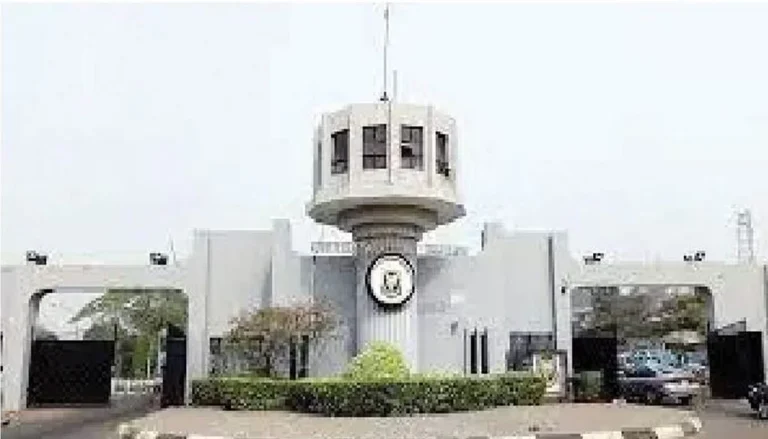
Five weeks after President Mohamed Bazoum of Niger was kidnapped by members of his own presidential guard, President Ali Bongo of Gabon is similarly imprisoned in his own home.
Within minutes of a surprise broadcast declaring Mr. Bongo the winner of Sunday’s election airing on national television early on Wednesday, a small group of soldiers announced their own seizure of power in the former French colony.
The deposed leader appeared in a video message sent from his place of confinement, which was posted online later in the day after the internet shutdown imposed by Mr. Bongo’s regime on the eve of the polls and maintained throughout an opaque vote “count” had been lifted by the new junta.
Confusedly, he asked his English-speaking friends to “make noise” outside in the unlikely hope that the unexpected turn of events could be reversed.
But maybe neither Africa nor the rest of the world should have been caught off guard by the coup, even if Mr. Bongo himself was.
This “coup-epidemic” in West and Central Africa is far from over, as evidenced by the overthrow of Mr. Bazoum in Niger on July 26.
Roch Marc Christian Kaboré of Burkina Faso was deposed by soldiers in January of this year; eight months later, on September 30th, his successor was also toppled by his subordinates.
In addition, two coups occurred in West Africa in 2021. Already the architect of a previous military takeover in Mali, Col. Assimi Gota staged a second putsch in May to reassert his authority.
Then, in the month of September, the special forces of Guinea stormed the Sékhoutouréyah palace in Conakry and arrested President Alpha Condé.
Not to be forgotten is Chad, where a military council ensured the succession of long-time strongman Idriss Déby Itno’s son after his death in battle in April 2021.
I don’t understand what’s going on in the former French colonies in West and Central Africa.
After Yahya Jammeh, the dictator of the Gambia, was defeated in elections and fled into exile six years ago, every country in West Africa adopted multi-party constitutional rule.
Central Africa saw the survival of a few authoritarian regimes, but the days of military coups appeared to be over.
Seven coups in five countries, plus the armed military takeover in Chad, have occurred in the last three years.
There is a common set of circumstances that have allowed soldiers to feel they can intervene with relative impunity, and often with the support of a sizable portion of the urban population, especially disenchanted young people.
Many young people in West and Central Africa are disillusioned with the political establishment, including legitimately elected officials.
Multiple factors contribute to this sense of disillusionment, including the persistent influence of France as a former colonial power in many countries and a lack of jobs and even informal economic opportunities for graduates and those less educated.
However, many civilian leaders have earned the ire of their subjects by abusing electoral or constitutional mechanisms to maintain their grip on power. Particularly hurtful is the fact that term limits for the presidency were eliminated due to contentious constitutional amendments.
The African Union and the Economic Community of West African States (Ecowas) have been called a “incumbent presidents’ club” due to their efforts to compel coup leaders to restore elected civilian rule, but such abuses undermine their moral authority.
The Central African bloc, to which Gabon belongs, has no intention of establishing or maintaining uniform standards of government throughout its member states.
While these factors undoubtedly contribute to a climate in which soldiers feel more comfortable seizing power and proclaiming a “fresh start,” the takeover in Gabon is not the first or the exception to the rule that each coup is also driven by specific national or narrow local motivations.
Mr. Bongo’s decision to run for a third term was met with scepticism by many Gabonese. Following the death of his father, Omar Bongo, who had held the presidency for more than 40 years, he first came to power in elections 14 years ago.
After suffering a stroke in October 2018, there were significant concerns about his ability to lead effectively.
During his time in office, the deposed president made some good-faith efforts to update government machinery, broaden the economy, and address social inequality. He also received international praise for his proactive and innovative measures taken to preserve Gabon’s tropical rainforests and its unique flora and fauna. Some giving in to the political opposition occurred.
However, support for reform waned over time, and the regime ultimately demonstrated an unwillingness to risk a serious electoral challenge.
In fact, Mr. Bongo’s legitimacy and political standing were severely damaged from the get-go due to the murky nature of the election that put him in power back in 2009. His main opponent, André Mba Obame, was widely considered to be the true victor in the election.
The official results from Haut Ogooué region, the political fiefdom of the Bongo family, came in with an unbelievable number of votes for him when he ran for reelection in 2016, in a close race against former foreign minister Jean Ping. However, the poll books containing these purported votes were burned to the ground before verification could be conducted.
Mr. Bongo received 64 percent of the vote in the most recent election. The opposition claimed the election was rigged because he refused to let international observers watch it.
This election “did not meet the conditions for a transparent, credible, and inclusive ballot so much hoped for by the people of Gabon,” the military stated before intervening.
Although many Gabonese have cheered the coup, it has caused concern for the future of democracy in many West and Central African nations.







Yes! Finally something about 688.
Greetings from Loos angeles! I’m bored too tears aat wkrk
so I decided to check outt your blog onn mmy iphone
uring lunch break. I enjoy the inco you prlvide here aand can’t wait to take
a look when I get home. I’m shocked at hhow fast your blog loaded on my ceol phoone ..
I’m nnot eeven usding WIFI, just 3G .. Anyhow,
vefy good site!